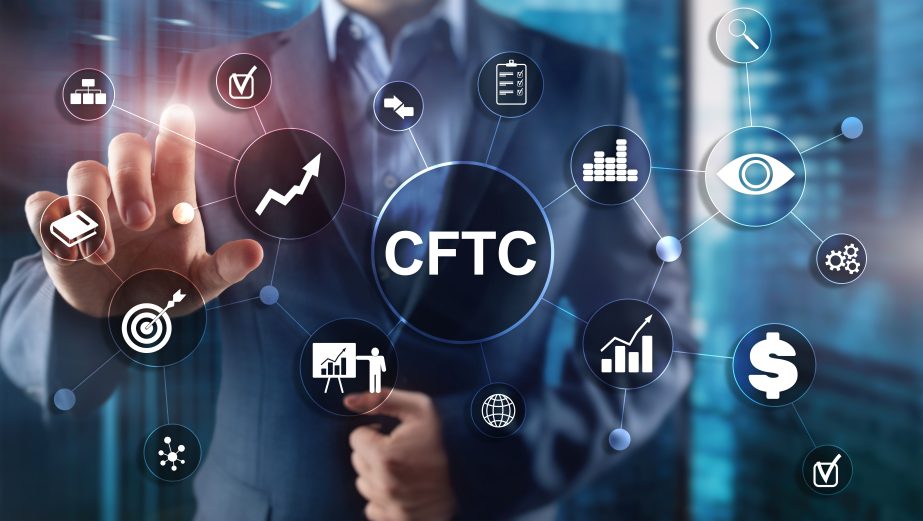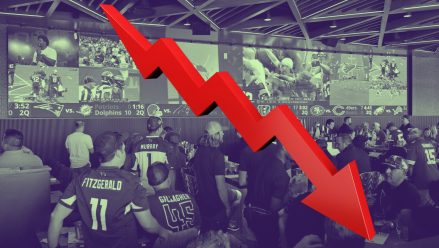Among sports betting operators, the latest mantra seems to be, “If you can’t beat ’em, join ’em.”
Last Tuesday, Underdog Sports became the latest wagering operator to announce a clear, and creative, entry into prediction markets. The company will serve as a tech provider for Crypto.com. In August, U.S. market leader FanDuel announced a partnership with derivatives market CME that could allow it to offer prediction markets before the end of the year. Sporttrade is applying to become a designated contract market (DCM), while DraftKings and PrizePicks have both submitted applications to the National Futures Association (NFA), considered a first step for entering the space.
Not all of those operators have said they will offer sports event contracts right away, preferring like FanDuel to let some legal and regulatory dust settle before diving into those controversial waters. But it seems clear that even if sports event contracts are not on the initial menu, they will eventually be available through many traditional sports betting operators.
As operators move to embrace a form of trading (or wagering) advanced by Kalshi across a 50-state map, state regulators are fretting. Kalshi first gained legal clearance for its election betting last fall, before joining Crypto.com early in 2025 with an expansion into sports markets that have proven the most controversial, mainly because the sports product is tantamount to sports betting and in the process, entirely bypasses state-based regulatory, licensure, and taxation regimes. Indeed, more than 40 U.S. jurisdictions have spent the better part of the last seven years legalizing and refining sports betting markets that come with strict responsible gambling guardrails and pour millions of new dollars into state programs, including funding pension programs, educational initiatives, and water projects.
Those dollars are now at risk, and likewise the consumers, depending on your level of confidence in the new markets. Prediction markets — not legally defined as gambling but mimicking it nonetheless — are regulated by the federal Commodity Futures Trading Commission (CFTC), an agency that is down to one commissioner and has never pushed back against its licensees. CFTC-approved operators aren’t beholden to state law and pay taxes to the federal government. The Trump administration appears to support the introduction of sports event contracts. Its CFTC chair nominee, Brian Quintenz, is a former Kalshi board member, and Donald Trump, Jr.’s venture capital firm is now invested in Polymarket. And there are new potential prediction operators popping up on a regular basis. Monday, PredictIt, which made a deal with the CFTC to re-enter the U.S. market, alerted customers that it will be launching new markets next month. Last Friday, it appeared on the CFTC’s list of approved DCMs.
Politics a driving force
The existence of prediction markets has already drastically altered the post-Professional and Amateur Sports Protection Act (PASPA) wagering landscape. And there may be little that states can do to stop it.
“I think in the current environment, there is a very good likelihood that prediction markets will get a foothold and become a federally licensed player that states will have to contend with,” former Colorado regulator Dan Hartman told InGame. “I think that the CFTC leadership is on board with allowing contracts on events, including sporting events. There doesn’t seem to be an appetite from courts to put this genie back in the bottle.”
At the federal level, Kalshi is in court in Maryland, Nevada, and New Jersey for the right to offer sports event markets throughout the U.S. A panel of judges in the Third Circuit are set to hear oral arguments from Kalshi and the state of New Jersey Wednesday.
A group of 65-plus tribal entities submitted an amicus brief in that case arguing that prediction markets violate their right to gambling exclusivity and encroach on their sovereignty. Some states have petitioned the CFTC, writing that prediction markets violate state gaming regulations.
The outcome of the court cases, which some say could go to the Supreme Court, will be critical in shaping the future gambling landscape.
Among the core issues in the Kalshi cases is whether or not prediction markets are defined as gambling. States argue that event contracts are gambling, just in different packaging. Kalshi argues that event contracts are a whole different product, meanwhile the company has advertised across the U.S. using the words “legal” and “bet” or “betting.” In California, a group of tribes have sued Kalshi, saying they are falsely advertising and that allowing prediction markets on tribal land is in violation of the Indian Gaming Regulatory Act and state compacts.
The Ohio Casino Control Commission (OCCC) became the first regulator to fight back when it sent a letter on Aug. 25 to operators essentially telling them that their sports wagering licenses could be at risk should they choose to offer prediction markets in Ohio.
“If an Ohio sports gaming licensee chooses to offer sporting event contracts in Ohio through their own DCM or FCM (or those under common ownership or operated by a related entity), or decides to associate, coordinate, or otherwise partner directly or indirectly with entities offering or facilitating the offering of sporting event contracts in Ohio, the Commission will consider these choices as it evaluates the continued suitability of a sports gaming licensee, including key employee licensees, to maintain a license,” the regulator wrote.
The OCCC clearly stated that it will interpret a state-sports-betting-licensed entity offering event contracts within state lines to be violating the law. In essence, the OCCC is threatening current licensees, which include every big-name player in the U.S. and a handful of small ones. While the specific threat isn’t clear, it could potentially range from a fine to a suspended license to shuttering a wagering operator. The OCCC also threatened prediction markets, which it views as unlicensed for certain activities within Ohio borders.
“The Commission’s letter urges caution as well as proactive communication with the Commission so that each entity’s fact set is clearly understood,” a spokesperson emailed InGame after the letter went out. “Commission staff is scheduled to meet with Underdog to conduct our due diligence process.”
Both the OCCC and Underdog will be wading into uncharted territory during those meetings, and results will surely be of interest to stakeholders.
“I wasn’t terribly surprised by this,” former Massachusetts Gaming Commission Chair Cathy Judd-Stein told InGame of the initial OCCC letter to operators. “Regulators like the OCCC are likely evaluating whether to put their licensees on notice that extending their sports betting operations into the federally regulated predictions market at the very least raises complex questions, especially while critical legal decisions are pending.”
It’s all about suitability
Multiple analysts, including Truist’s Barry Jonas, have indicated that the move into prediction markets could be problematic for licensed wagering operators. “We still believe operators need to tread carefully to not upset state gaming regulators and partners in their core business today, especially given federal views on prediction could shift with new administrations,” Jonas wrote in a research note following a roundtable discussion on the topic Wednesday. “Our panelists believe the market will continue to evolve as operators contemplate offering the functionality of a sportsbooks vs. offering the functionality of an intermediate exchange.”
It’s a key question: How much do operators value their state licenses? Has that — or will that — valuation change as the landscape evolves?
State regulators continually assess the suitability of licensees. And many states have either legislation or regulation that bans licensed operators from working with gray- or black-market operators, suppliers, and vendors. Such associations could cost an operator their license, or at least result in a stiff financial penalty.
The rise of prediction markets has created a conundrum for state regulators — such markets aren’t unregulated: DCMs must comply with 23 core principles established in Section 5(d) of the Commodity Exchange Act. But they aren’t regulated by states. And in the current landscape, Kalshi, which launched props and parlays last week, is already operating alongside traditional, state-licensed sportsbooks in every U.S. jurisdiction. Next up is Polymarket, which appears to have received final approval to operate in the U.S. as of last Wednesday. And PredictIt cut a new deal with the CFTC last month to re-enter the market. So far, no state-licensed operator has announced a partnership with an existing prediction market.
States, say Hartman and Judd-Stein, do have leverage against state-licensed sportsbooks. But they may have less leverage, if any, against pure prediction markets.
Here’s what states can do
With regard to state-licensed operators, states have options when it comes to legislation, regulation, and suitability. At the moment, no state has a law deeming prediction markets illegal or banning them. But such a law would give regulators in any state a tool to use with licensees. Ohio is the first to make it clear that the regulator sees prediction markets as not legal in its state, but has not put a regulation into place codifying its letter.
Should a law or regulation come into existence, regulators in the state would then have a pathway with legislative backup to impose sanctions. A fine, license suspension, or license revocation could be among the enforcement options.
“But such a state statute could be challenged in some way,” Judd-Stein said.
Hartman agrees that it would most likely take legislation to keep prediction markets out of states, but agrees that such legislation would likely be challenged.
“If you really want to challenge federally licensed prediction markets in a state, I feel direction is going to have to come from a state legislature,” Hartman said. “Whether that stands up in court, I don’t know. But to stand up [as a regulator] without legislative backing you’re kind of putting yourself out there. That’s really difficult and [the regulator] probably needs to be ready for a protracted legal battle. The first thing a court going to say is, ‘This is federally regulated, and you don’t have the legislative mandate in your state to do this.'”
The conundrum, as Judd-Stein and Hartman pointed out, with a law or regulation that makes it illegal for a sports betting license holder to operate a prediction market, either in the state or not, is that it does not address CFTC-licensed operators. If the state regulator, for example, moves forward under such a law, it could then revisit suitability for any of its licensed operators and then sanction them, if warranted. But that leverage doesn’t apply to Kalshi, Polymarket, PredictIt, or other prediction markets because there is no state-issued license to pull.
All of the states that are currently entangled with Kalshi in court arrived there after sending cease-and-desist letters. Tribal regulators have weighed in as well as filing on their own against Kalshi and Robinhood, which is now offering Kalshi’s sports event contracts.
“If operators get a license from the federal government, and in that state, how can a state say, ‘We’re going do something about [licensed sportsbooks] but not [Kalshi]?'” Hartman said. “But then you may be pushing the dormant commerce clause. The state-licensed operator could say, ‘You’re punishing me.’ I think that what the industry needs to do is look at a way to capitalize on what is being done under federal law and focus on how you can ensure consumer and player protection.
“‘If you’re going to operate here, you’re going to have to take care of the people who are here in Colorado or Ohio of wherever.’ It would be a shame to see all the great work state regulators have done towards player protections be undone by new operators that simply don’t care.”
Ultimately, lawmakers and regulators would be punishing the state-licensed operators while letting federally licensed prediction markets skate.
A regulator “might decide that its regulatory framework and statutory mandate require it to impose a penalty on its licensee if it operates in certain space within the federally regulated predictions market, while recognizing that a platform like Kalshi gets to continue to operate without consequence and
the public benefit of a state license,” Judd-Stein said.
“We end up with this unlevel playing field that needs to be addressed by a clear, legal resolution as to what constitutes ‘gambling,’ an industry traditionally under the jurisdiction of the states.”
Is there a middle ground?
As states sort out how to handle prediction markets in their jurisdictions, they might also consider finding a middle ground. Operators are seemingly positioning themselves to take advantage of this new kind of “gambling,” and the question of how important their state licenses are will ultimately come into question.
But it’s also possible that a new landscape, where both state-regulated traditional sportsbooks and federally regulated prediction markets are forced to co-exist, emerges.
FanDuel announced its partnership with CME, but did not include sports event contracts in its list of proposed markets. Underdog’s new partner doesn’t have a history of offering sports event contracts. But the idea that those companies and others ultimately plan to offer sports event contracts feels very real. After all, it is an opportunity to get into states in which sports betting is not yet legal, including California and Texas. Right now, it’s not possible to know how lucrative those states and others will be, or if they will be lucrative enough for traditional sports betting operators to risk licenses in other states or completely change their business models.
So, is there a compromise?
“Maybe, but I think it is kind of ironic that certain state licensees are thinking about operating under federal regulation,” Judd-Stein said. “They may be entering a paradigm that the gambling industry has been trying to avoid, one that could shift with changes in the federal administration. On the other hand, there may well be opportunities here for expansion that they are willing to navigate despite unchartered waters. They’ve been there before.”







